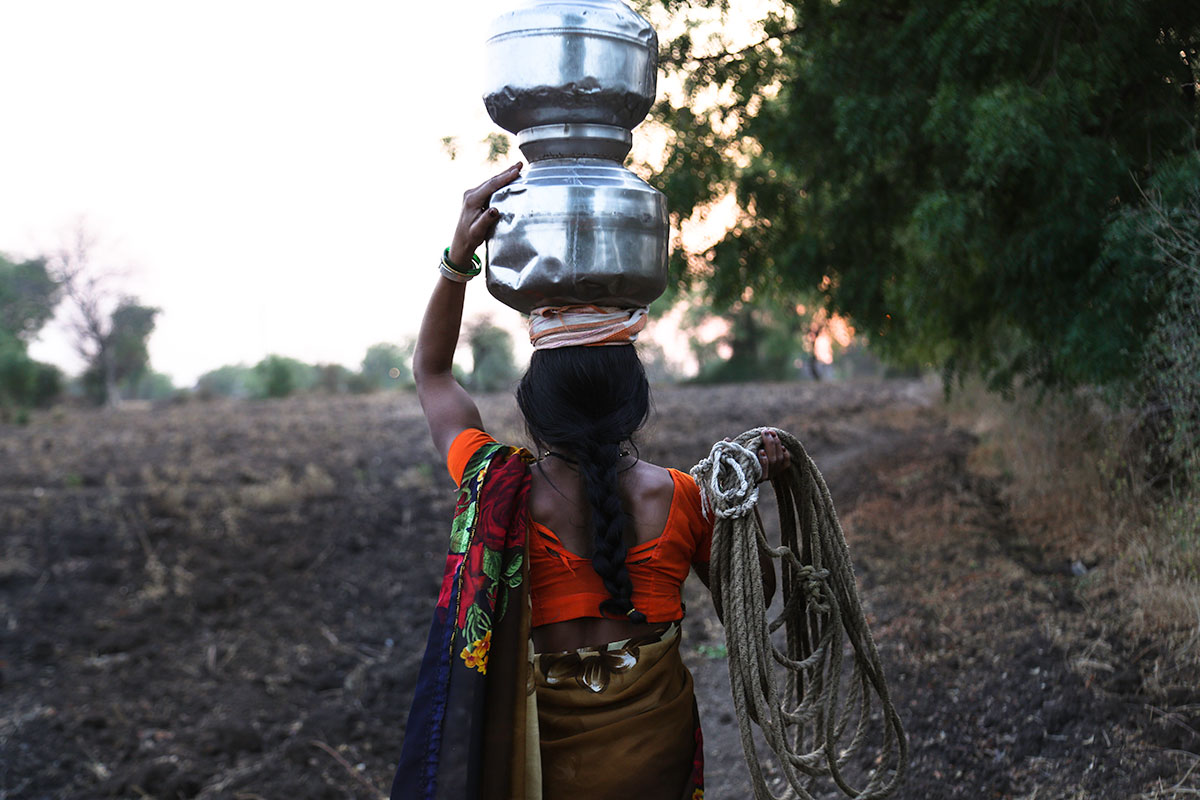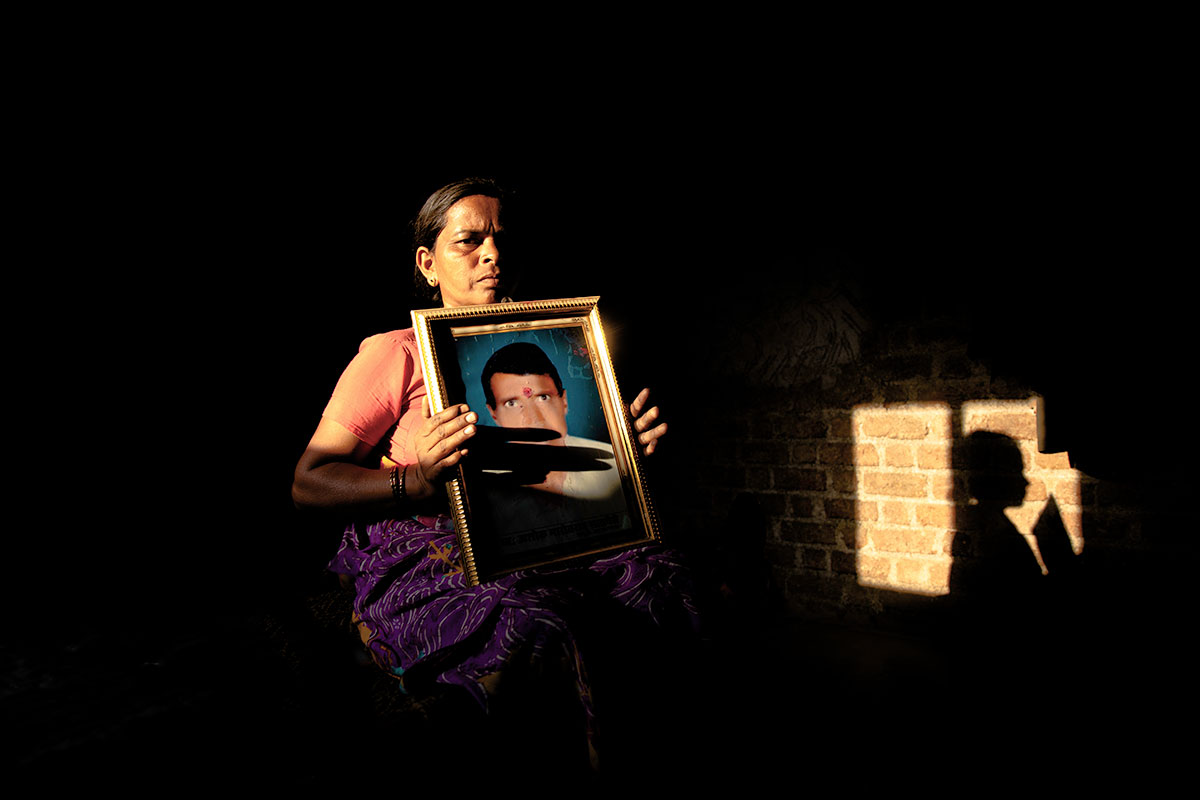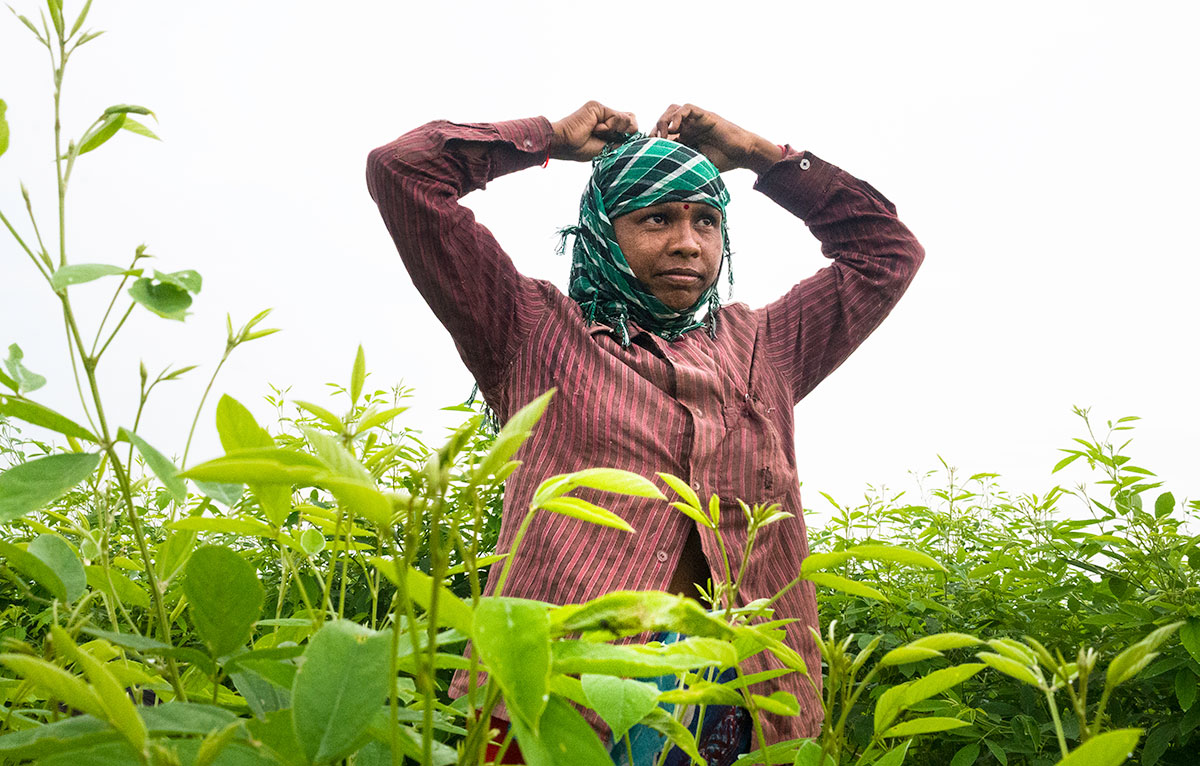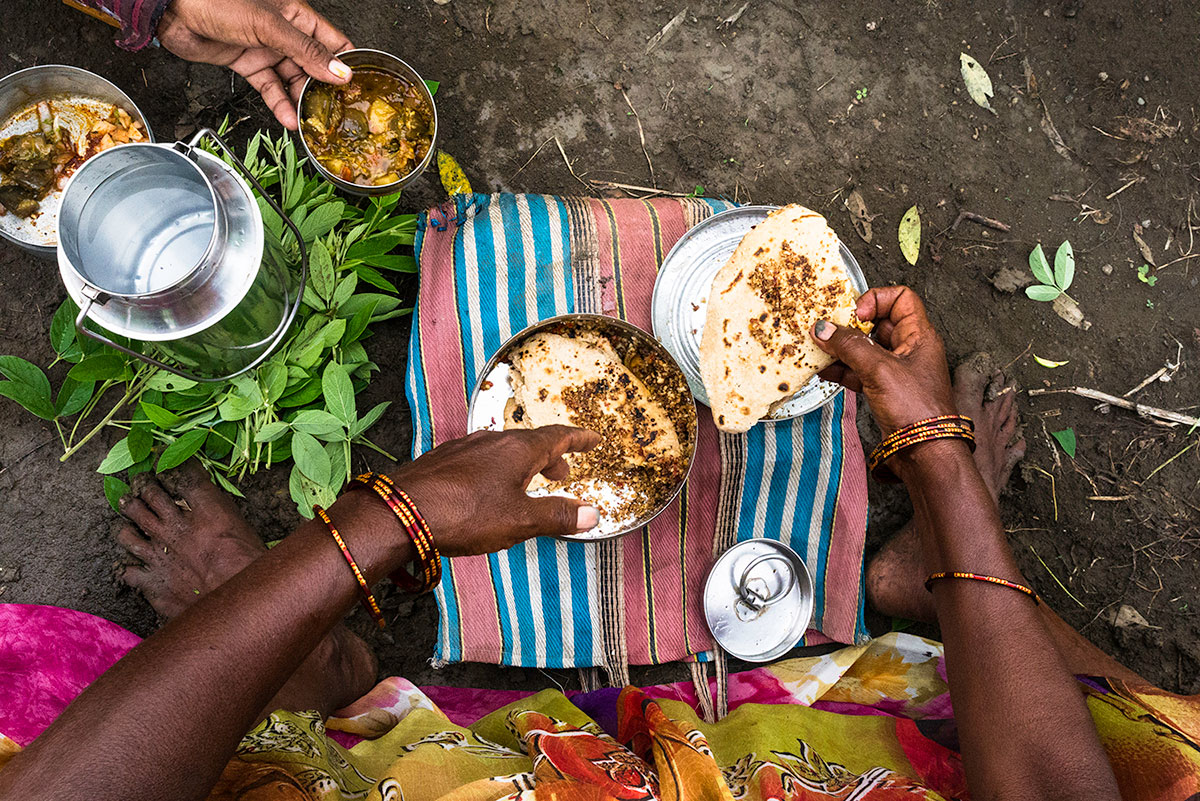Once Vidarbha was known for its cotton or "white gold" production, but now the region is mostly known as the suicide belt of India.
According to Vidarbha Jan Andolan Samiti (VJAS), a non-governmental organisation that has been documenting the suicide of farmers for the past 15 years, approximately 6,000 farmers have killed themselves since 2012 in six districts of Vidarbha region - Amravati, Yavatmal, Wardha, Washim, Akola and Buldhana.
The situation is the same in the nearby region of Marathwada. Even a debt of 10,000 rupees ($150) is enough to push a farmer over the edge. Young farmers aged between 18 and 30 accounted for the second-highest number of suicides, leaving widows and children to cope with the consequences.
The poor and marginal farmers fall into the clutches of moneylenders, who charge exorbitant rates of interest, which the farmers are unable to repay, thus pushing them into perpetual debt that leads to the spate of suicides, said Rahul Bais, who heads Swarajya Mitra, a VJAS partner organisation.
In villages around Vidarbha, tales abound of the suffering endured by widows of farmers who have killed themselves because of the agrarian crisis. Widows and children who are left behind face a difficult life.
The widows are pushed into more debt and take jobs as labourers on other farms to sustain themselves. The children often drop out of school as their mother can't afford to pay fees, and they work to help the family instead.

Savita's husband, Jitender, hanged himself from the roof of their home. She is one of the hundreds of widows who is now left to fend for herself. She is now raising her three daughters - Yogini 12, Roshni 10 and Tanu 6 - on her own. She must also repay the debt her husband incurred from private moneylenders and banks. [Deepti Asthana/Al Jazeera]

The only treasure Savita possesses are her children, who provide her with the strength to keep going. [Deepti Asthana/Al Jazeera]

Tanu is full of energy. Her laughter is the food for the poor family, especially for her mother who lives for her children. [Deepti Asthana/Al Jazeera]

The only man in the family is Savita's 93-year-old father, who came to live with them after Jitender's suicide. Savita, although independent, still longs for a man for her family to avoid harassment and the stigma a widow faces in her society. [Deepti Asthana/Al Jazeera]

Women walk up to 3km to fetch water for the daily needs of their family. Using toilets or taking a bath is a luxury. There is no water at school for the children who return home for water and go to fields for the toilet. [Deepti Asthana/Al Jazeera]

With perpetual economic struggles, those who have the courage and can afford to, migrate to big cities such as Mumbai, Pune and Nagpur. [Deepti Asthana/Al Jazeera]

'We haven't eaten any vegetable for the past two months. We only eat lentils that we produce in our fields,' says Sangeeta, the widow of Ashok Saatpaise, 45. [Deepti Asthana/Al Jazeera]

Savita, widow of Praveen Chaudhari, 30, was only 15 when she married and now has two children. Praveen died only seven months ago, the most recent farming suicide in the district. She is now looking for a way to start a small business to take care of her children. [Deepti Asthana/Al Jazeera]

Vaishnavi Thakre, 13, was only five when her father killed himself. She now stays in a hostel as her mother can't afford to pay for her travel to senior school in Chandur. She misses being at home. [Deepti Asthana/Al Jazeera]

Savita wears her husband's shirt to protect her from heat and husk. With the death of the family's bread-winner, Savita has been forced to take all sorts of jobs, from working on other people's farms to ironing clothes of neighbours. [Deepti Asthana/Al Jazeera]

Savita and other women farmers take a lunch break from their work as labourers in soybean fields in Vidarbha. [Deepti Asthana/Al Jazeera]

Most of the women find work as labourers for a daily wage of around $2. The work is available two or three days a week, depending on the requirements of the landowner. [Deepti Asthana/Al Jazeera]

Roshni, Savita's third daughter cooks on the wood fire for a family celebration. The smoke is harmful for children, but Savita can't afford to get a gas cylinder, and instead picks up wood while returning from work. [Deepti Asthana/Al Jazeera]

In the neighbourhood, women gather to sing Bhajans - devotional songs - and prayers. [Deepti Asthana/Al Jazeera]

Savita
Al jazeera

Comments